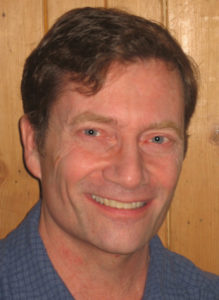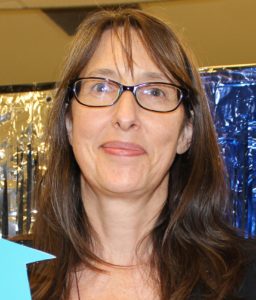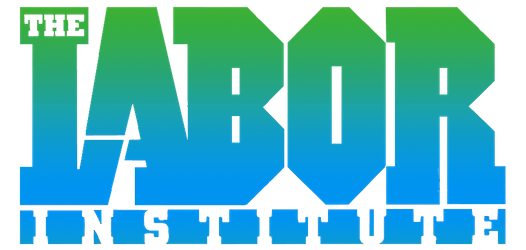Les Leopold, Executive Director
 After graduating from Oberlin College and Princeton University’s School of Public and International Affairs (MPA 1975), Les co-founded the Labor Institute (1976), a non-profit organization that designs research and educational programs on occupational safety and health, the environment and economics for unions, worker centers and community organizations. In addition to his current book, Runaway Inequality: An Activist’s Guide to Economic Justice (Labor Institute Press, 2015), he is the author of How to Make a Million Dollars an Hour: Why Financial Elites get away with siphoning off America’s Wealth (John Wiley and Sons, 2013); The Looting of America: How Wall Street’s Game of Fantasy Finance destroyed our Jobs, Pensions and Prosperity, and What We Can Do About It, (Chelsea Green Publishing, June 2009); The Man Who Hated Work and Loved Labor: The Life and Times of Tony Mazzocchi, (Chelsea Green Publishing, June 2006). The Mazzocchi story won the Independent Publisher Award for best biography. He is currently helping to build a national economic educational train-the-trainer program with unions and community groups (all proceeds from his current book go back into this campaign). He is currently doing research on how economic runaway inequality is exacerbating the effects of Covid-19 on essential workers and police brutality.
After graduating from Oberlin College and Princeton University’s School of Public and International Affairs (MPA 1975), Les co-founded the Labor Institute (1976), a non-profit organization that designs research and educational programs on occupational safety and health, the environment and economics for unions, worker centers and community organizations. In addition to his current book, Runaway Inequality: An Activist’s Guide to Economic Justice (Labor Institute Press, 2015), he is the author of How to Make a Million Dollars an Hour: Why Financial Elites get away with siphoning off America’s Wealth (John Wiley and Sons, 2013); The Looting of America: How Wall Street’s Game of Fantasy Finance destroyed our Jobs, Pensions and Prosperity, and What We Can Do About It, (Chelsea Green Publishing, June 2009); The Man Who Hated Work and Loved Labor: The Life and Times of Tony Mazzocchi, (Chelsea Green Publishing, June 2006). The Mazzocchi story won the Independent Publisher Award for best biography. He is currently helping to build a national economic educational train-the-trainer program with unions and community groups (all proceeds from his current book go back into this campaign). He is currently doing research on how economic runaway inequality is exacerbating the effects of Covid-19 on essential workers and police brutality.
Jim Young, Co-Director and Secretary

Jim has spent his career focused on working with unions and labor-environment-public health coalitions and has been with The Labor Institute since 2005. He currently leads the LI’s work with the United Steelworkers on member education about climate change and environmental policy, working closely with USW District 12, which covers 11 western states in the US, and with USW District 4, which covers the Northeast.
In 2006, Jim and the LI’s Les Leopold helped the United Steelworkers and Sierra Club found the BlueGreen Alliance, a national labor-environment collaboration that now includes nine of the country’s largest unions and five of the largest environmental organizations. From 2006-2014 Jim helped build the organization, serving as BGA’s Vice President of Programs.
Prior to joining the Labor Institute, Jim was a media and strategy consultant to many unions, including 1199 Service Employees International Union, Utility Workers Union of America, and the Association of Flight Attendants. He also worked for both the New York Committee for Occupational Safety and Health(NYCOSH), a network of unions fighting for safe working conditions, and the New Jersey Work Environment Council(WEC), the oldest and largest statewide labor-environment alliance in the country. Jim now serves as Chair of the WEC Board of Directors. He also is a co-founder and current Executive Committee member of the Cancer Free Economy Network, a national collaboration that aims to reduce the incidence of cancer and chronic diseases connected to toxic, environmental exposures.
Jim is an expert on the subject of “Just Transition” for workers and speaks frequently on this topic. He is carrying on longstanding work led by the Labor Institute, as the concept was invented by Tony Mazzocchi and the term was coined by Les Leopold and Canadian trade union leader Brian Kohler. Over the past several years, Jim has developed model transition programs and strategies that are being used to develop state policy in Washington, Oregon and New Jersey. Along with the United Steelworkers District 12 and the Washington State Labor Council, he assisted the Political Economy Research Institute at the University of Massachusetts in 2017 with the development of a groundbreaking Just Transition research report: “A Green New Deal for Washington State.”
Rodrigo Toscano, Project Director

Rodrigo has worked for the Labor Institute since 1999. He is a certified NIEHS (National Institute of Environmental Health Science) Health & Safety, and Environment bi-lingual training coordinator, OSHA Susan Hardwood Grant trainer, an authorized OSHA outreach trainer/coordinator in General Industry as well as in Construction. Rodrigo coordinates the NIEHS Department of Energy grant with native American partners, Yakima Nation and Confederated Tribes of the Umatilla United Steelworkers and workers centers, New Labor, Make The Road, and National Day Laborers Network. Rodrigo is currently working on the Covid-19 crises, helping to design safe back-to-work models for unions, Native American tribes and communities of color. Rodrigo played a lead role through the NIEHS EPA grant in organizing community based cleanup efforts in New York and New Jersey in the aftermath of hurricane Sandy by helping local organizations build lasting and effective second-wave response structures. As a training coordinator for the United Steelworkers, Rodrigo has been working in conjunction with the Tony Mazzocchi Center in a nation-wide cross-organizational 5-year effort to adapt Labor Institute / USW OSH curriculum and training methods to the Communications Workers of America telecommunications sector. Rodrigo is also a nationally recognized author of experimental poetry. He was a 2007 National Poetry Series Selection, a recipient of a 2005 New York State Fellowship in Poetry and two Fund for Poetry grants. His works have appeared in numerous anthologies, including Best American Poetry (2004). His critical and poetic works have appeared in over 150 journals and magazines. He has given talks, conferences, and readings in over 70 colleges and universities around the country and abroad. rt5le9 (@) aol (dot) com
Arturo Archila, Project Director
 Arturo has worked for the Labor Institute since 2015. He is a Master Trainer in the Construction and General Industry Field and he is also a certified NIEHS Health & Safety, Infectious Disease, Resiliency and Environment bi-lingual training coordinator, an authorized OSHA outreach trainer/coordinator in General Industry as well as in Construction. He is currently the project director for the New York State Hazard Abatement Board grant. He was recently the NIEHS Health & Safety Liaison between the United Steelworkers and Wind of the Spirit, Worker Justice Project, New Immigrant Community Empowerment, El Centro, Workplace Project, Center for Popular Democracy, La Colmena, New Labor, Make The Road, and National Day Laborers Network. The project has been an incredible support for worker centers in providing capacity building and developing a cadre of Authorized Outreach trainers that have as a mission to reach out to immigrant workers and provide access to Health and Safety Training in a language and manner understood by the local communities. The overarching aim is to dramatically decrease fatalities in the workplace, specifically the injuries and fatalities of Latinos in the workplace. Similar efforts are being replicated in Washington State with the Yakima Nation.
Arturo has worked for the Labor Institute since 2015. He is a Master Trainer in the Construction and General Industry Field and he is also a certified NIEHS Health & Safety, Infectious Disease, Resiliency and Environment bi-lingual training coordinator, an authorized OSHA outreach trainer/coordinator in General Industry as well as in Construction. He is currently the project director for the New York State Hazard Abatement Board grant. He was recently the NIEHS Health & Safety Liaison between the United Steelworkers and Wind of the Spirit, Worker Justice Project, New Immigrant Community Empowerment, El Centro, Workplace Project, Center for Popular Democracy, La Colmena, New Labor, Make The Road, and National Day Laborers Network. The project has been an incredible support for worker centers in providing capacity building and developing a cadre of Authorized Outreach trainers that have as a mission to reach out to immigrant workers and provide access to Health and Safety Training in a language and manner understood by the local communities. The overarching aim is to dramatically decrease fatalities in the workplace, specifically the injuries and fatalities of Latinos in the workplace. Similar efforts are being replicated in Washington State with the Yakima Nation.
As part of the collaboration with the Steel Workers, Arturo is part of the SERT Specialized Emergency Response Trainer team. Through the project, strong connections have been created between USW and grassroots organizations to respond to local disasters such as Hurricanes Harvey, Irma, and Maria in Houston and Puerto Rico.
Arturo is currently a Building Power Node Leader and a Network Council Member in The “Cancer Free Economy” Network is a growing collaboration of 50+ organizations working together in aligned, cross-sector projects to eliminate toxic chemicals associated with cancer and other chronic diseases, from where we live, learn, work, play and pray. It is a network of member organizations, not a new organization itself, that is governed by a Network Council made up of working group leaders and contributing foundations.
Arturo works part time as a field organizer for USW District 4. The campaigns focus on marginalized workers in an array of industries that include warehousing, clerical, material handling and manufacturing. The campaigns reflect the power of building alliances among community base organizations and successful Union drives.
He is currently spearheading Covid-19 health and safety response efforts alongside immigrant worker centers nationwide.
Kris Raab, Project Director
 Kris Raab spent more than 20 years at the Communications Workers of America in research, bargaining support, mobilization, and education. Through CWA’s long-standing relationship with The Labor Institute, she was introduced to the small group activity method for workshops and quickly became a zealous advocate for it. She developed or contributed to more than two dozen workshop curriculums for contract mobilization, internal organizing, and legislative and political advocacy and trained hundreds of worker-trainers in the small group method.
Kris Raab spent more than 20 years at the Communications Workers of America in research, bargaining support, mobilization, and education. Through CWA’s long-standing relationship with The Labor Institute, she was introduced to the small group activity method for workshops and quickly became a zealous advocate for it. She developed or contributed to more than two dozen workshop curriculums for contract mobilization, internal organizing, and legislative and political advocacy and trained hundreds of worker-trainers in the small group method.
While at CWA, Kris helped develop an economic and racial justice workshop based on Les’s book, Runaway Inequality: An Activist’s Guide to Economic Justice, and to train CWA’s Runaway Inequality worker-trainer corps. Those trainers have run workshops for thousands of their co-workers as well as members of USW, UAW, NEA, Teamsters, APWU, the Sierra Club, and other unions and community groups.
Since joining the Labor Institute, Kris has adapted the Reversing Runaway Inequality workshop for other unions and community organizations and continued training trainers. She is also working with the Debs-Jones-Douglass Institute to educate union members about Medicare for All through the “RunawayInequality and the Crisis in U.S. Healthcare” curriculum.
As of spring 2020, she is working to transform workshop curriculums and the small group activity method for remote learning.
Kris’s other experience includes helping to revise NIEHS training workbooks for the USW Tony Mazzocchi Center, working on behalf of union clients at a labor law firm, and serving multiple terms as an elected shop steward and bargaining committee member.
